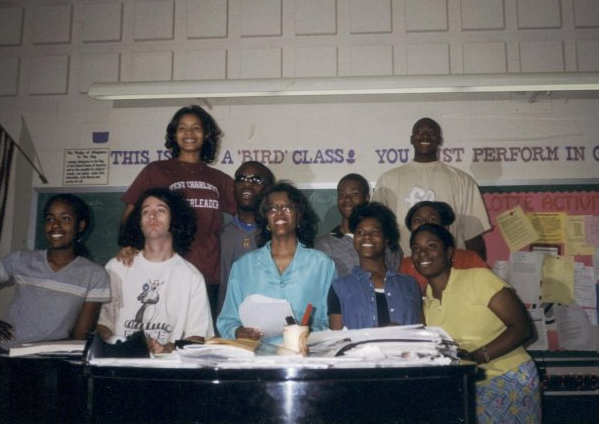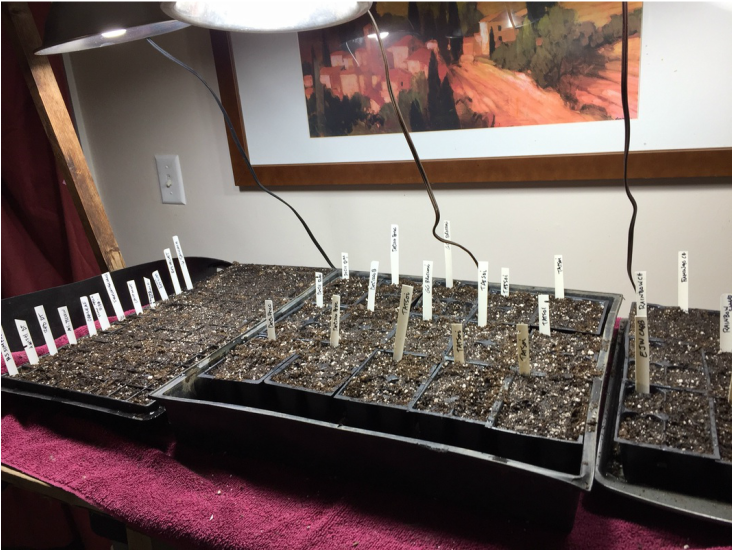First, I thought, I was born to be a teacher. And that's true, in part-- when I told friends and family that I was planning on teaching, they all said Duh, Andrew. I do, in fact, compulsively explain things to people. But growing up, I wanted to be a paleontologist-broadcaster-newswriter-poet. I didn't decide that I was going to teach until I was a senior in college when I tutored in the AVID program at Asheville High. I believe that if I was "born this way," then I'd have known it from an early age.
Then I thought, This is the only thing I know how to do. Also not true. I play music; I garden; I write; I have plenty of experience cleaning office buildings.
I don't teach because I have no other options: I do it because I love it.
To be honest, no, I don't like teaching every day. Sometimes it's a grind; sometimes my stomach hurts, or it's a high-anxiety day for whatever reason, or the kids just aren't feeling it. Teaching is equal parts gratifying and terrifying, at least for me. It's a constant battle to stay present in the moment, to stay with the kids mentally, to keep after it.
But I do love it. Every day. Teaching challenges me to give my best, even when situations outside the classroom threaten to steal my focus. It has brought me friendships, with colleagues and compadres and cheesebuckets and even former students who are now much older. Though it doesn't define me, or give me my sense of self-worth (it's not really a good life plan to put your emotional state in the hands of around 100 different 16-year-olds), it does give me a sense of purpose, a mission, and an outlet for a tremendous amount of creative energy.
It brings me joy. That's not the same thing as Always Makes Me Happy. But when the lights start going on in kids' minds and in their work, or even when they decide to keep grinding away, even when they aren't getting it yet, when they forget that there's a grade attached to the end of what they are doing: that's love. That's joy. That's why I do what I do.



 RSS Feed
RSS Feed
